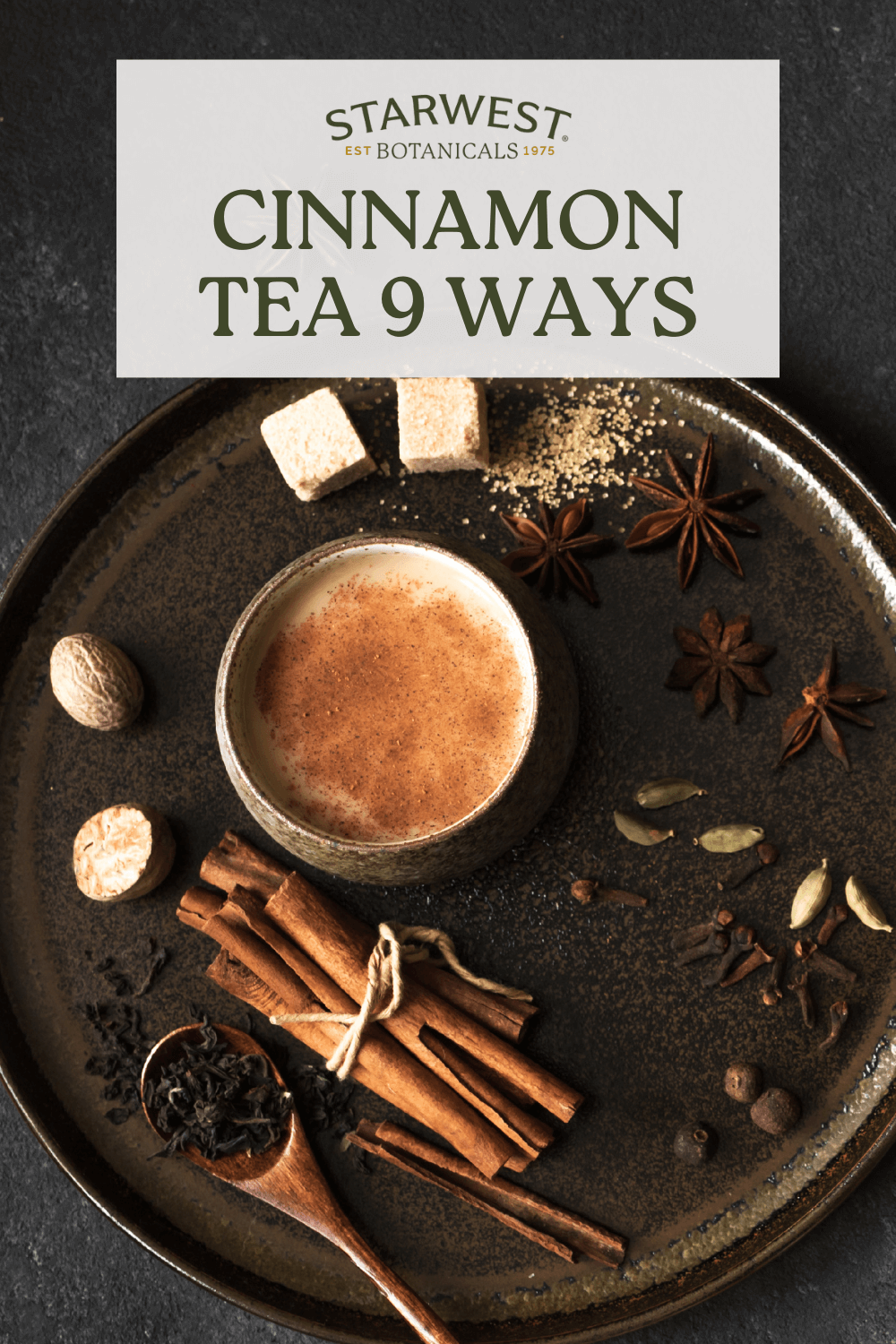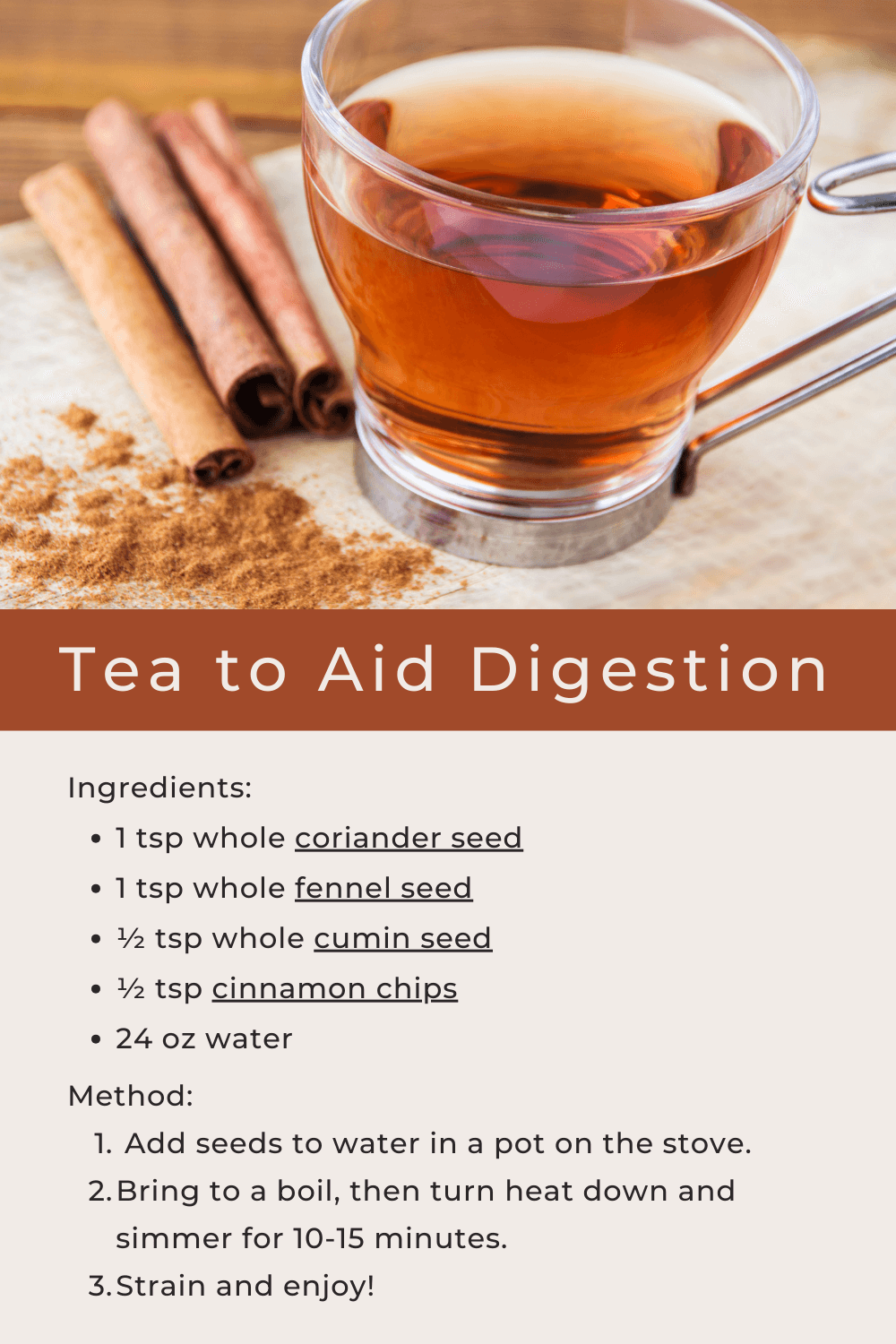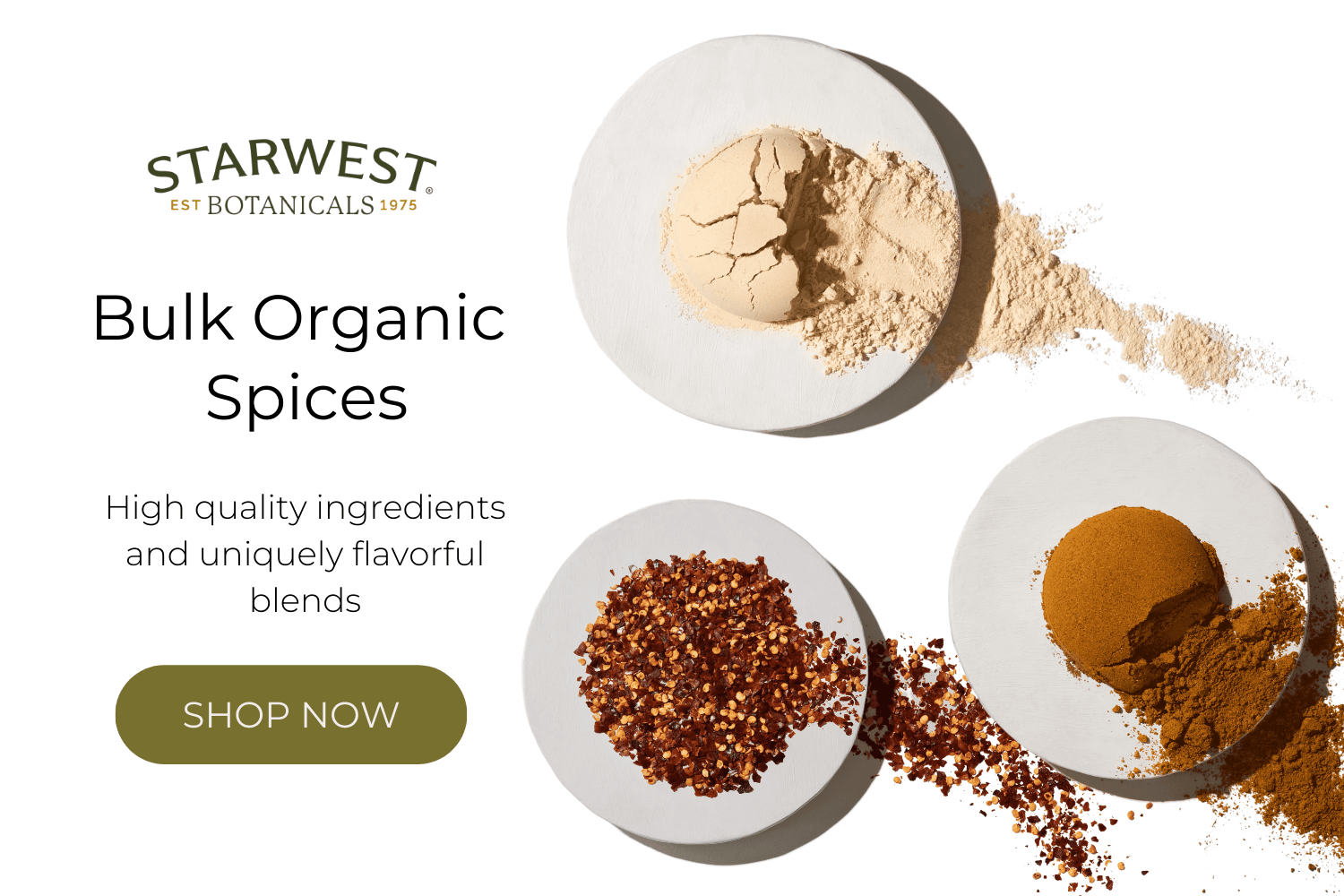Cinnamon Tea: 9 Ways | Starwest Botanicals
Posted by Molly McConnell on 12-16-2023

If you are someone who loves cinnamon for its amazing flavor and cozy aroma, and will be happy to know that in addition to its delicious taste and smell, cinnamon is actually good for you! It offers our body a full spectrum of potential health benefits.
You may have a couple go-to recipes or beverages that always include cinnamon, but it’s time to restore inspiration and tap into the vast possibilities of sipping cinnamon tea in more ways than you ever thought possible. Below you will find nine unique and delicious variations on cinnamon tea, each offering a potential remedy to everyday wellness challenges.
Tea to Aid Digestion
Cumin, coriander and fennel are commonly used to aid digestion in Ayurveda. This combination is believed to keep agni (digestive fire) strong and soothe the digestive tract. Adding cinnamon brings a little extra heat, which can be great in the cooler months, as well as for those with vata and kapha constitutions.
Ingredients
1 tsp whole coriander seed
1 tsp whole fennel seed
½ tsp whole cumin seed
½ tsp cinnamon chips
24 oz water
Method
- Add seeds to water in a pot on the stove.
- Bring to a boil, then turn heat down and simmer for 10-15 minutes.
- Strain and enjoy!
Note: To learn more about your digestive capacity, according to the wisdom of Ayurveda, start by taking this quiz.

Tea to Aid Absorption
Cinnamon, cardamom and bay are a well known aromatic trio. The combination is believed to possibly aid in absorption of nutrients. You will commonly find these aromatic spices working together in Ayurvedic recipes.
Ingredients
1 Bay leaf
16 oz water
Method
- Bring 16 ounces of water to a boil.
- In a teapot or large jar, pour hot water over herbs and steep for 15-20 minutes.
- Strain and enjoy whilst still warm.
Notes: If you don’t have a cinnamon stick, substitute ½ tsp Ground Cinnamon. You can also substitute ¼ tsp cardamom for 1 cardamom pod. This tea can be re-steeped for a more mild flavor.
Tea to Maintain a Healthy Weight
This traditional combination of cinnamon and honey is believed to soothe kapha (the earth and water elements within) and may help in maintaining a healthy weight. Both cinnamon and honey are heating, while honey also offers a scraping quality to ease stagnation and stuckness.
Ingredients
8 oz hot water
8 oz cool water
½ tsp cinnamon
1 tsp honey
Method
- Mix cinnamon into hot water.
- Add cool water and then honey, and stir well.
- Sip slowly and enjoy this tea first thing in the morning, before breakfast.
Tea to Support Sleep
Warm spiced milk is believed to support restful sleep by calming the wind element (vata dosha) in the body and mind. As this remedy may ground and soothes the nervous system, it has the potential to help you fall asleep faster. When cinnamon is added to this bedtime recipe, it may also become a traditional Ayurvedic remedy for coughs.
Ingredients
1 cup milk (see note below)
1 cup water
¼ tsp turmeric root powder
¼ tsp cinnamon powder
⅛ tsp cardamom powder
⅛ tsp nutmeg
⅛ tsp black pepper
Optional: 1 tsp Honey Granules (remove from heat, then stir in)
Note: When it comes to milk, look for an organic cow or goat’s milk that is non-homogenized and low-temp pasteurized. If you do not tolerate dairy, coconut or almond milk are OK too. When it comes to non-dairy milks, try to find one that is free of genetically modified oils, emulsifiers and gums, added sugars, natural flavors or colors, and carrageenan. The simpler ingredients, the better.
Method
- In a small/medium saucepan with a heavy bottom, combine milk, water and spices.
- Bring to a boil, then simmer with the lid on for about 10 minutes.
- Pour into a glass, straining the herbs if desired.
- Mix in honey granules.
- Enjoy 30 minutes before bed.
Tea to Soothe the Throat
Next time you have a hoarse throat, try sipping this beverage. Traditionally in Ayurveda, cinnamon is also used to support healthy discomfort levels.
Ingredients
1 tsp cinnamon powder
1 tsp lemon Juice
1 Tbsp honey
8 oz hot water
Method
- Combine all ingredients, stirring until the honey dissolves.
- Sip this hot beverage slowly.
Tea to Promote Warmth and Circulation
In addition to cinnamon, this tea features a classical Ayurvedic formulation called trikatu. Trikatu consists of three heating (or pungent) herbs: dried ginger, black pepper, and pippali (aka long pepper). Pippali is in the Schezuan family, so it can have a bit of a smoky or tingly effect. This formulation is traditionally used to enkindle digestive fire. The name tri-katu actually translates to “three-pungents”. Cinnamon is believed to support circulation and when combined with these famous warming herbs, it may offer a powerful heating mechanism for the hands and feet.
Ingredients
¼ tsp ginger powder
¼ tsp ground black pepper
¼ tsp ground long pepper (pippali)
¼ tsp cinnamon powder
12 oz warm/hot water
Method
- Combine all ingredients and enjoy when the body is feeling cold or digestion is feeling sluggish.
Note: If you can’t easily find pippali powder, use the whole pippali and grind it up in a spice grinder or mortar/pestle to the best of your ability. (Since you’ll be making tea out of it, it’s ok if it doesn’t form a fine powder.)
Tea to Enhance Mental Clarity
As an herb that is often associated with increased circulation, cinnamon may promote blood flow to the brain. When paired with herbs like tulsi and brahmi, this combination has the potential to support mental clarity.
Ingredients
1 Tbsp tulsi
1 tsp bacopa or gotu kola (aka Brahmi Leaf)
1 tsp cinnamon chips
24 oz water
Method
- In a french press, teapot, or mesh tea strainer over a large jar, pour hot water over herbs.
- Cover and steep for 15-20 minutes.
- Enjoy this tea in the afternoon, or in the morning in place of coffee.
Tea to Soothe Menstrual Cramps
While cinnamon is heating, hibiscus is cooling. Cinnamon helps relieve excess vata (air and space elements within us) that may be related to discomfort or bloating. Hibiscus is believed to counter excess pitta (fire element within us), which may be related to inflammation or increased intensity of PMS symptoms. The two herbs together deliver a balanced and vibrant herbal tea that is great for that time of the month. Because hibiscus is so astringent, a little coconut sugar can really take the edge off.
Ingredients
½ tsp ground cinnamon
1 tsp dried hibiscus flowers
½ tsp coconut sugar
Method
- Combine herbs and steep for 10-15 minutes.
- Strain, then stir in coconut sugar until it dissolves.
- Enjoy hot or room temperature.
Note: This can also be made as a sun tea by steeping for two hours in a clear, glass vessel (such as a large ball jar) under the rays of direct sunlight.
Cinnamon Chai Tea Concentrate to Embody Coziness
Now is your chance to level up from that sugary-sweet pumpkin spice latte and opt for a more balanced warming drink. This recipe invites you to make a concentrated tea that can be easily reheated throughout your week and mixed with your favorite milk.
Chai is an incredibly wise combination of herbs and ingredients. Unlike coffee, which offers a more extreme experience of the bitter taste, chai embodies five of the six Ayurvedic tastes. Because chai has more balancing components, our bodies don’t experience it in such an extreme or harsh way.
The more heating spices like cinnamon and ginger help counter the mucus-forming tendency of milk and make it a little lighter and easier to digest. Cardamom is believed to help metabolize caffeine and milk, while fennel and cardamom together bring in a soothing quality to counter the hot, sharpness of the other herbs.
Ingredients
3 Tbsp fresh or dried ginger root slices
2 Tbsp fennel seed
1 tsp whole cloves
8 cups water (64 oz)
- maple syrup or honey to taste
Optional: milk, black tea
Method
- In a mortar and pestle, grind up cardamom, cinnamon sticks, fennel seed, and cloves — just enough to release an aroma.
- Add water to a large pot and place over medium/low heat.
- Add all the spices, including sliced ginger, to the pot of water
- Bring to a boil. Then, cover and simmer on low for 30-60 minutes.
- Remove from heat and strain through a fine mesh strainer.
- Add 2-3 Tbsp of honey or maple syrup. Stir to dissolve.
- Pour into a jar with a lid and store in the fridge for up to 7 days.
- To enjoy, simply combine with equal parts milk and heat on the stove. If you’d like caffeine, add 1-2 black tea bags (or 1-2 Tbsp loose black tea) and steep for five minutes.
Notes: When it comes to black tea, I always prefer to use assam in chai.
For a more advanced version of this recipe, you may dry toast the spices for 1-2 minutes (stirring frequently). Toasting spices can add even more flavor to your final product.

Bio
Molly McConnell is a Certified Ayurvedic Practitioner who is committed to cultivating collective wellness. Guided by curiosity, embodied listening, and the rhythms of nature, Molly’s approach to Ayurveda is intentional and intersectional. As the cofounder ofCultivate Balance, she supports purpose-oriented people to come home to their bodies and restore resilience through nourishment, ritual, and routine. For a more immersive experience,Connect with Molly 1:1 or check outThe Reset for Resilience.
Instagram/Tiktok
Website



